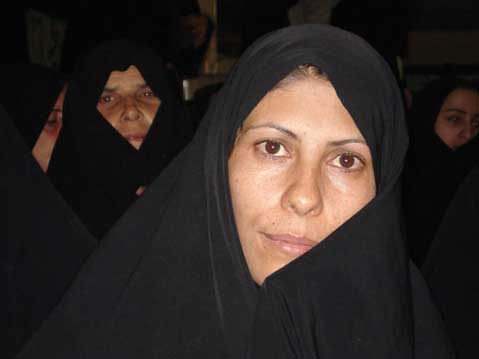"You can take off your headscarf now," Seema says with a wide smile as she welcomes me into her world and offers me some tea.
A friend of a friend who'd lived in Iran for a few months introduced me to Seema, a 24-year-old film editor. She's part of a crowd of twenty- and thirty-somethings I saw in Tehran's lively galleries and cafes. They're artistic, literary and highly educated young people from middle class families.
Seema lives with her parents and her brother in a three-bedroom apartment in central Tehran. She sits on her bed and chain-smokes. Her room is almost like a little apartment. She has everything she loves here -- her books and movie posters. This is where she and her friends gather to watch films by Martin Scorsese or Richard Linklater.
Seema insists she isn't an activist, but I think she's engaged in a quiet battle for the soul of her nation. She'd like to see a secular government in power here, and she knows she has a long struggle ahead of her. She doesn't think change can come quickly.
"What we need is time," she said. "Step by step is much better than an overnight change. It can't happen overnight."
If there were another revolution in Iran, you probably wouldn't see Seema and her friends marching in the streets. It's through art and literature that they believe they can change their country.If there were another revolution in Iran, you probably wouldn't see Seema and her friends marching in the streets. It's through art and literature that they believe they can change their country. And so they gather in galleries and cafes that are springing up around Tehran. They pass around dog-eared copies of banned books. They wear casual cotton headscarves and loose, bohemian clothes -- rejecting the tight-fitting high-fashion overcoats favored by North Tehran's wealthy elite. Being more concerned with literature than their physical appearance can be a bold statement in a city where post-nose job bandages are badges of honor for young men and women alike...
Continue reading full article at FRONTLINE/World


